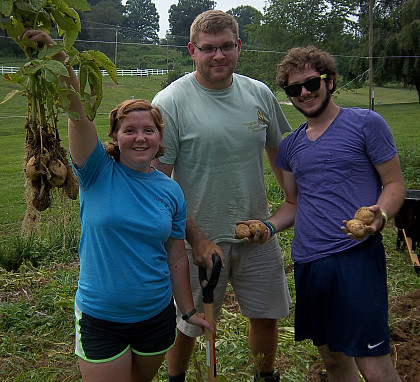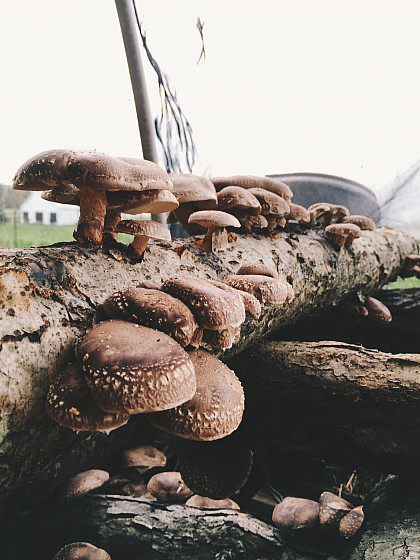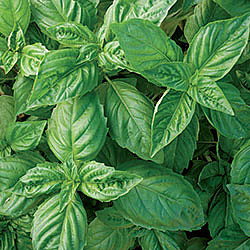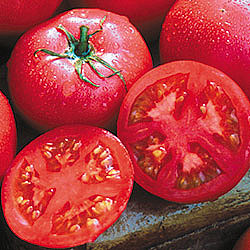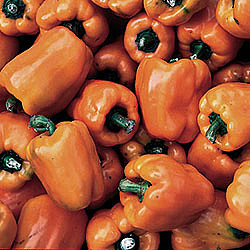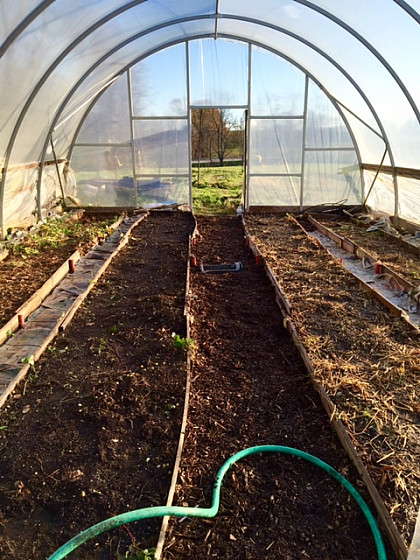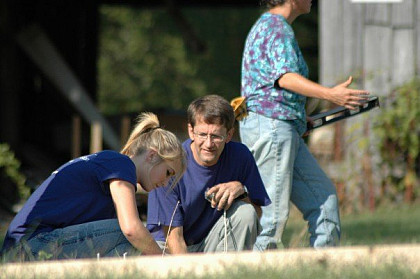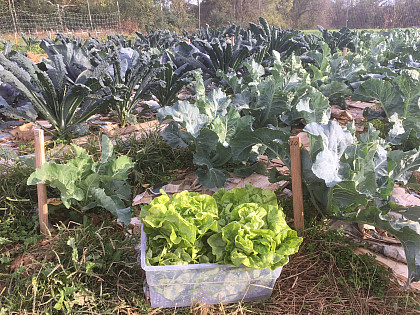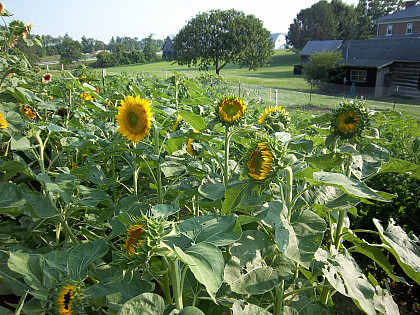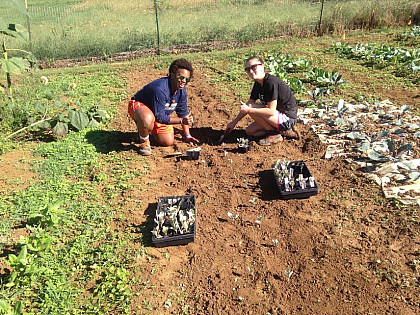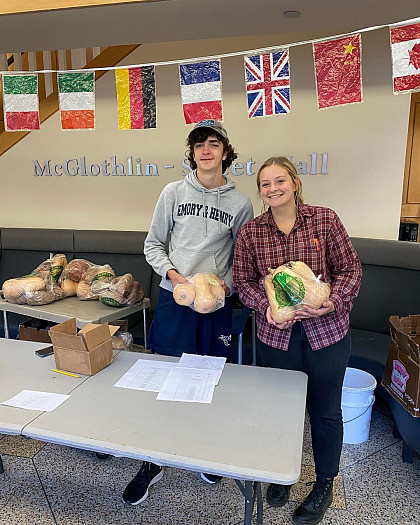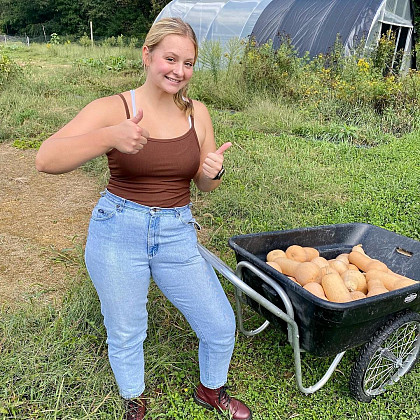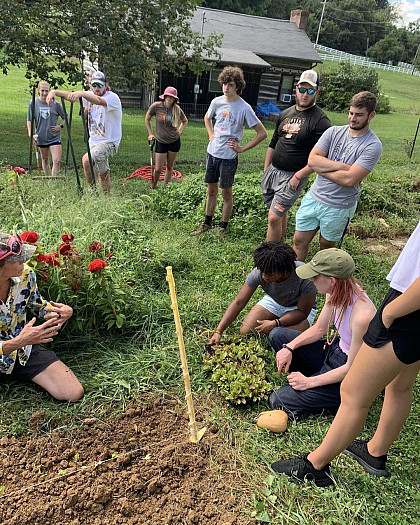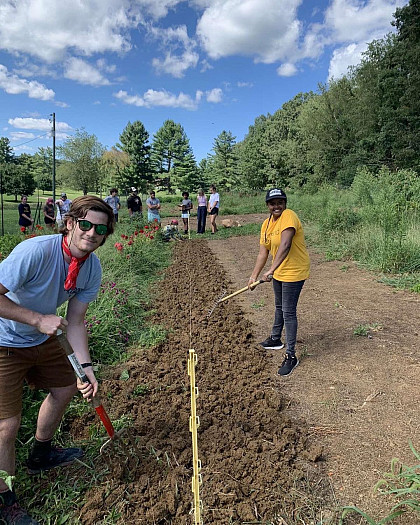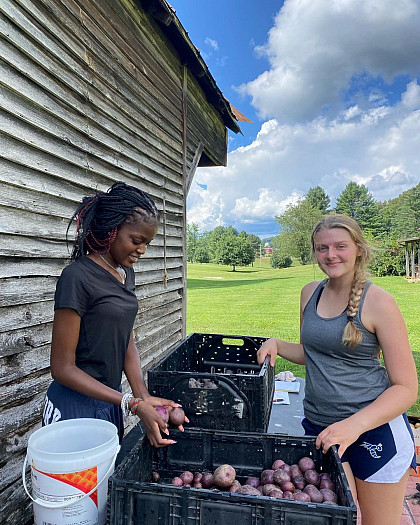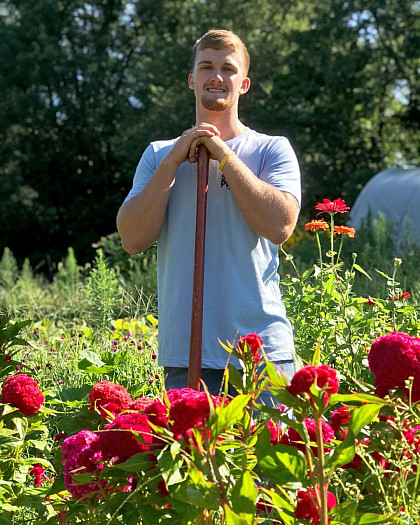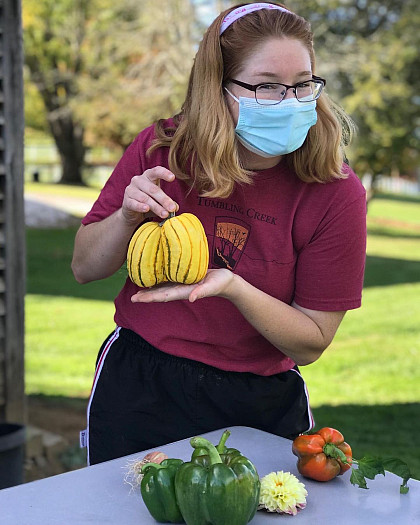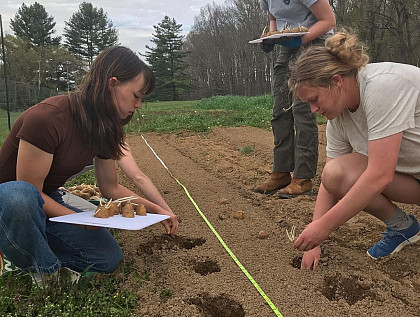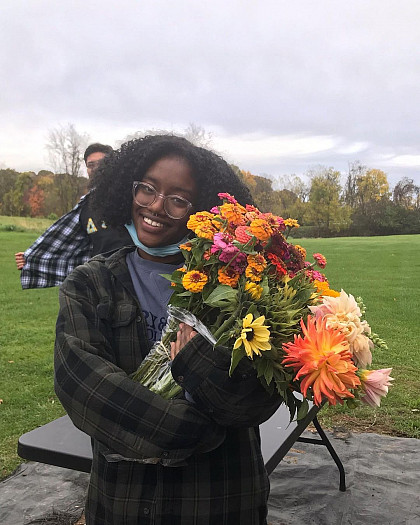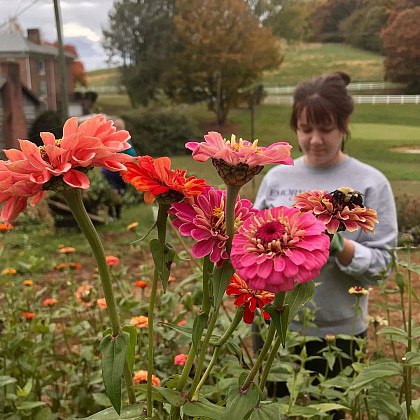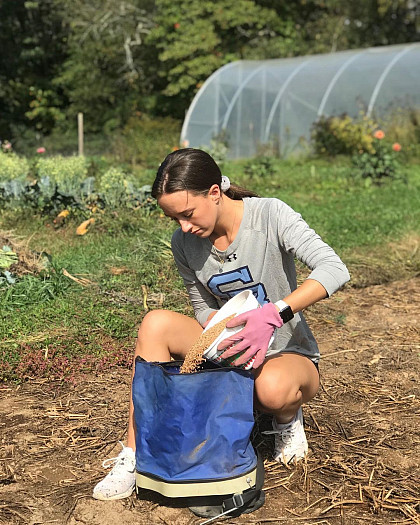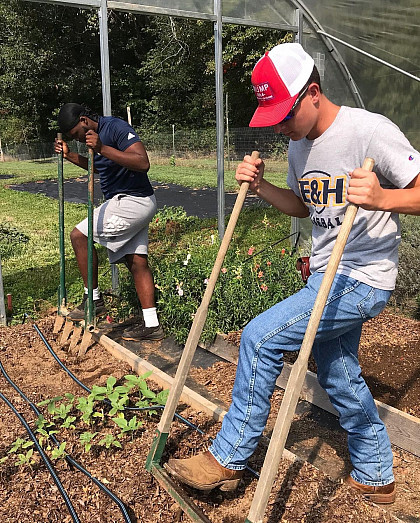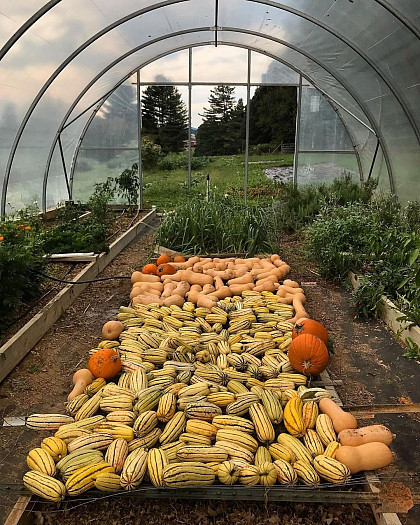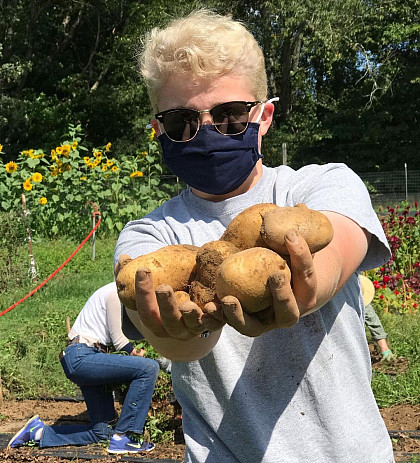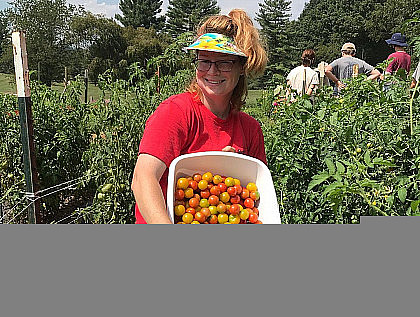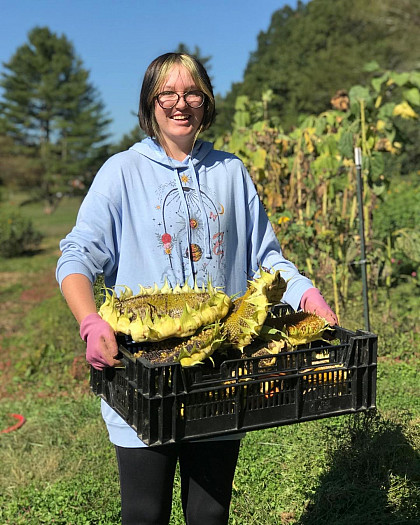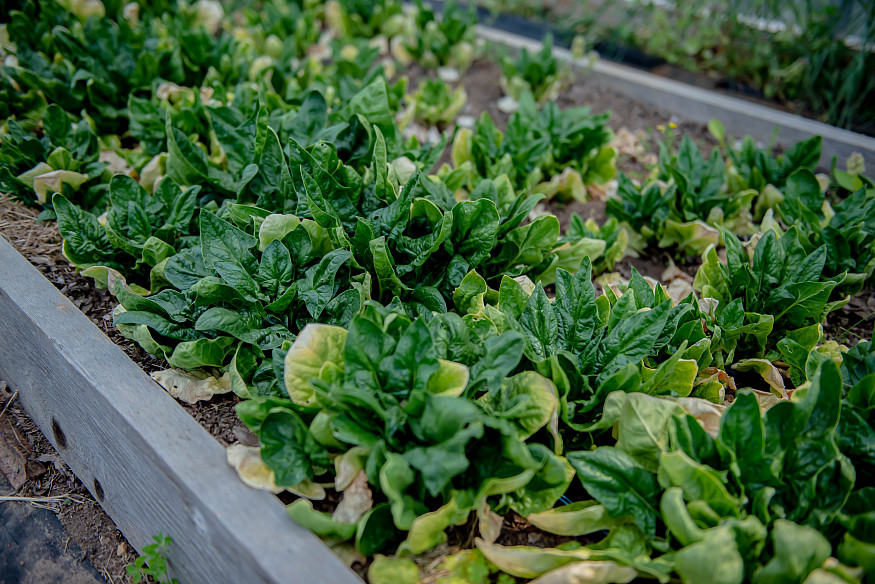
Emory & Henry Learning Garden
Class is always outside for students who work in the
Emory & Henry Learning Garden.
The Emory & Henry Learning Garden is an outdoor living classroom located behind the Buchanan Blakemore House on campus where the E&H community can cultivate a relationship with food and nature. For students in the Organic Food Production courses, it is the main classroom. Students engaging in the Food Studies minor often help in garden activities. For other students and staff the garden is a venue to connect with nature, engage in service projects, participate in the growing of food, and take some veggies home in exchange. The learning garden is a platform to participate in food production and give back to the community through food.
Organic Food Production class begins in the fall with lots of harvesting, washing, and selling the garden’s bounty. We learn about various vegetable pests, diseases, scheduling, and post harvest handling practices. We study soils and compost and take soil tests to investigate and improve our soil activity and fertility. Students learn what NPK means and how organic farms meet their fertility needs. Fall crops, including winter cover crops, are calculated and seeded. Crops for the following season garden are selected, scheduled, and otherwise planned by the students.
We survey different schools of thought in organic production including Biointensive, Permaculture, and Fukuoka’s Natural Farming and compare these thoughts to what it means to be Certified Organic. Discussions comparing localized food systems and the industrialized food system are common during our time together working in the garden.
The Advanced Food Production class in the spring works to fine tune the seeding and planting schedule prepared by the fall class. Cover crops are incorporated to the soil and garden beds are prepared with compost and other organic materials. Propagation techniques are learned and put into practice. Students dig deeper into compost, turning it and learning how it’s made, how it’s used, and its significance in the garden system. Beds are prepared for the season and the seeding, transplanting, watering and weeding begin.
Most students leave for the summer when the garden is growing strong. Summer options for students include: Community Gardening class, work study, and Bonner summer project. Research Experiences through various departments can be implemented in the garden as well.
All students and staff are welcome to work in the garden. Please contact Professor Tamara McNaughton prior to your first garden visit. She or a student will give you an introduction to the garden and show you simple processes we’d like you to employ when enjoying and working in the garden. Essentially, we’d like you to sign in and know where to find: list of things we need help with, student written procedures on how to accomplish tasks, tools and materials you might need, and where to record your accomplishments. We’re working on building a student centered and community friendly learning garden where people feel empowered to get outside, get their hands dirty, plug into Nature and enjoy cultivated natural spaces.
Get Involved!
There are many ways to get involved. You can take any of the Organic Food Production classes; projects through other classes; Research Experiences; Service Plunge events; bring your sorority, fraternity, or other club for a community project; or volunteer any time! To learn more about the E&H garden, contact Tamara McNaugthon, professor of the Organic Food Production classes.
Follow the E&H Garden on Instagram to see what we’re up to in the garden.
